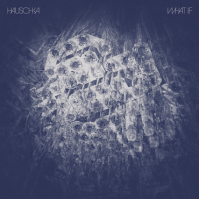
Formats
- SLANG50117CD £10.00
Hauschka
What If
Since the release of his debut album, Substantial, in 2004, Volker Bertelmann – aka Hauschka – has, slowly but surely, earned a remarkable reputation as a purveyor of imaginative, distinctive, prepared piano music. This isn’t, to be fair, a heavily populated field, but it’s one he’s made his own, and while some might have dismissed his work early on as a novelty, Bertelmann has proven himself to be uncommonly inventive, coaxing ever more unprecedented, euphonic sounds and rhythms out of his instrument. Even so, on What If – which finds him adding player pianos (also known as pianolas) to his armoury – Bertelmann expands his range even further, defying expectations and delivering what is without doubt his most ingenious album yet. Bertelmann has found increasing amounts of work as a soundtrack composer, working on scores for a number of documentaries and feature films, not least James Franco’s adaptation of John Steinbeck’s In Dubious Battle and, alongside Dustin O’Halloran, Lion, for which they’ve both been nominated for a Golden Globe. Nonetheless, despite this rush of activity – or perhaps even inspired by it – What If reveals itself as the work of a man hungry to explore new sounds, eager to experiment with new approaches, and undeniably revelling in this irrepressible outpouring of creativity. For Bertelmann, the opportunity to record another album of his own was a welcome one. “My solo work,” he explains, “is autonomous, and I can choose every step from the beginning without any outside influence. I definitely decided with What If to make a record that might be my most radical. The lyrical piano has disappeared, and the sounds I’m fascinated by – like noise and electronic elements – have taken over.”And in a break from his traditional methodology – he programmed parts for player pianos, exploiting the speed at which they could play, manipulating the resulting sounds, and building layers to emphasise a composition’s metre. Overflowing with haunting melodies (I Can’t Express My Love, Familiar Things Disappear), mysterious sounds (I Can’t Find Water, My Kids Live On Mars), complex patterns (Constant Growth Fails, Nature Fights Back) and a rare dexterity that’s hopefully matched by the intellectual response to the challenging scenarios its titles envisage, What If crowns an extraordinary couple of years for Bertelmann. Arguably, in fact, it represents the culmination of everything he’s worked towards these past dozen or so years. “I was always attracted by hip hop, deep rhythms and weird sci-fi electronica” he concludes. “What If is a result out of both that and the hundreds and hundreds of concerts I’ve played, where I developed a way of mixing all these elements together.” Likely to prove one of 2017’s most original albums, while at the same time inspiring questions about the very nature of the world we inhabit, What If redefines the very notion of piano music in a dramatic and exceptional fashion. It stands as a rebuttal to those who lazily seek to shoehorn Hauschka’s work into the so-called, uncomfortably broad ‘new classical’ category, and instead underlines his status as a unique and invaluable artist.






































































































